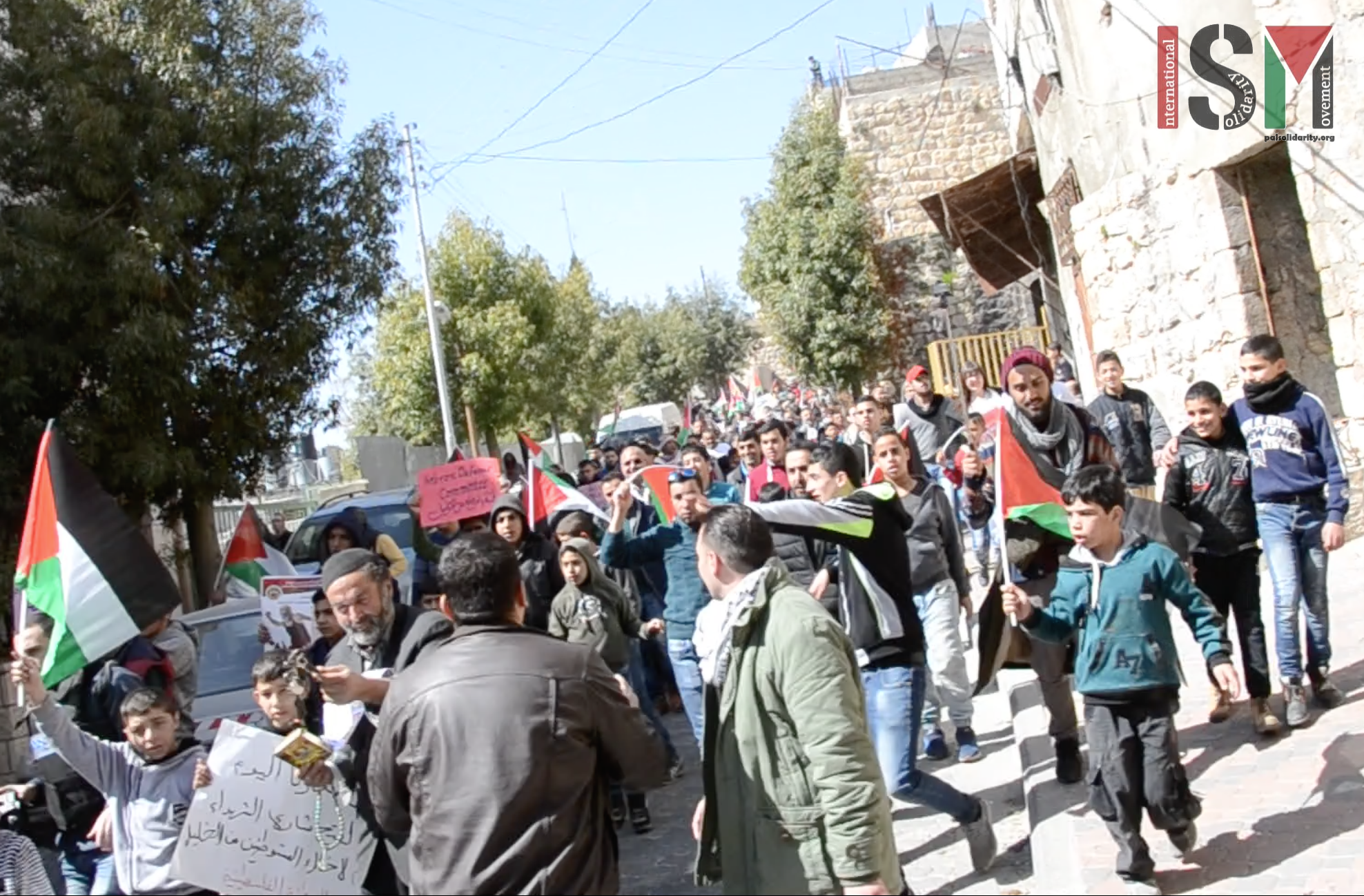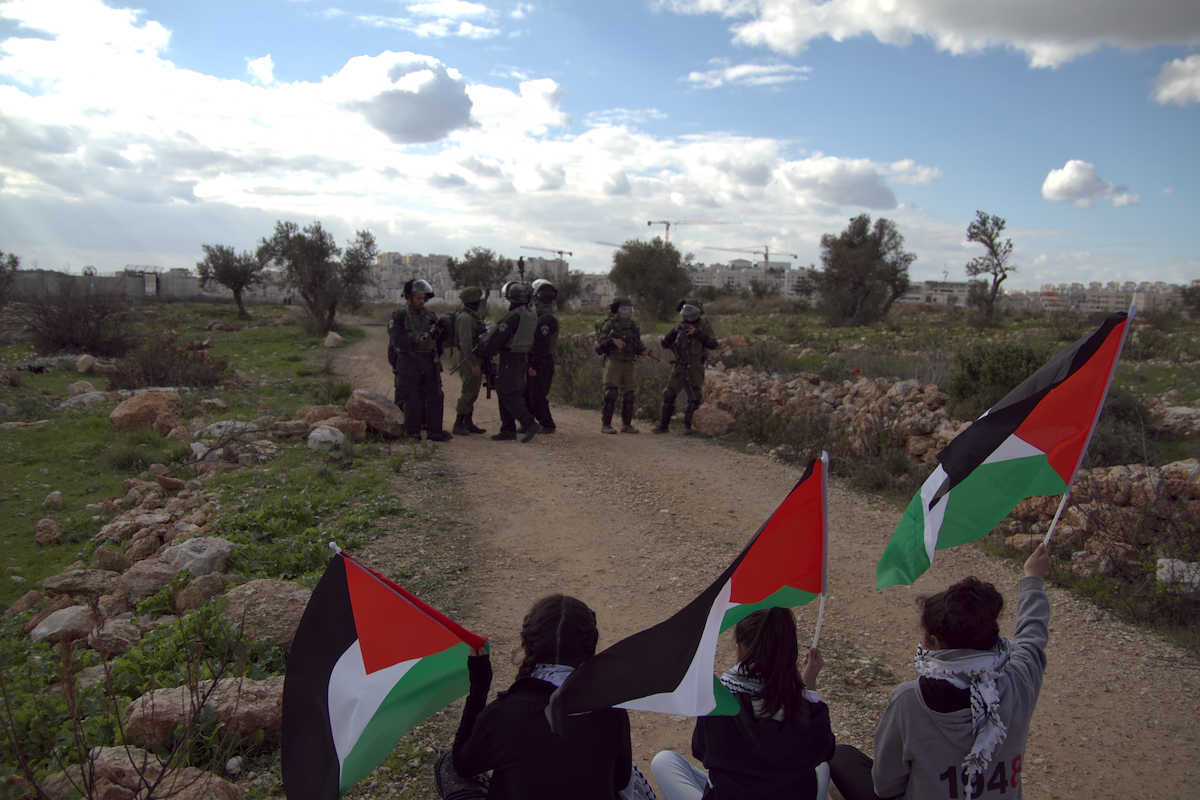Tag: Settlement
-
Israeli army attacks peaceful demonstration in Hebron and injures protesters : eye-witness accounts
24th February 2017 | International Solidarity Movement, al-Khalil team | Hebron, occupied Palestine On 24th February several hundred people joined together for a demonstration in al-Khalil (Hebron) in occupied Palestine. Palestinians, Israelis and international activists protested together against the occupation of Shuhada Street and Tel Rumeida in the heart of the city, closed by the military…
-
Sumud: Palestinian for endurance
22nd February 2017 | International Solidarity Movement, al-Khalil team | Hebron, occupied Palestine As a second time ISMer I write a blog for friends and supporters back home (at salamfrombetty.tumblr.com if you would like to follow). I asked for questions from my readership and I got this from my friend Rachel: How are you coping…
-
12th anniversary of the popular resistance in Bil’in
18th of February, 2017 | International Solidarity Movement, Ramallah team | Bil’in, Occupied Palestine The 17th of February marked the 12th anniversary of the popular resistance of the people of Bil’in against illegal Israeli settlements and the apartheid wall. Throughout these 12 years there have been protests every week by the people of the village,…



